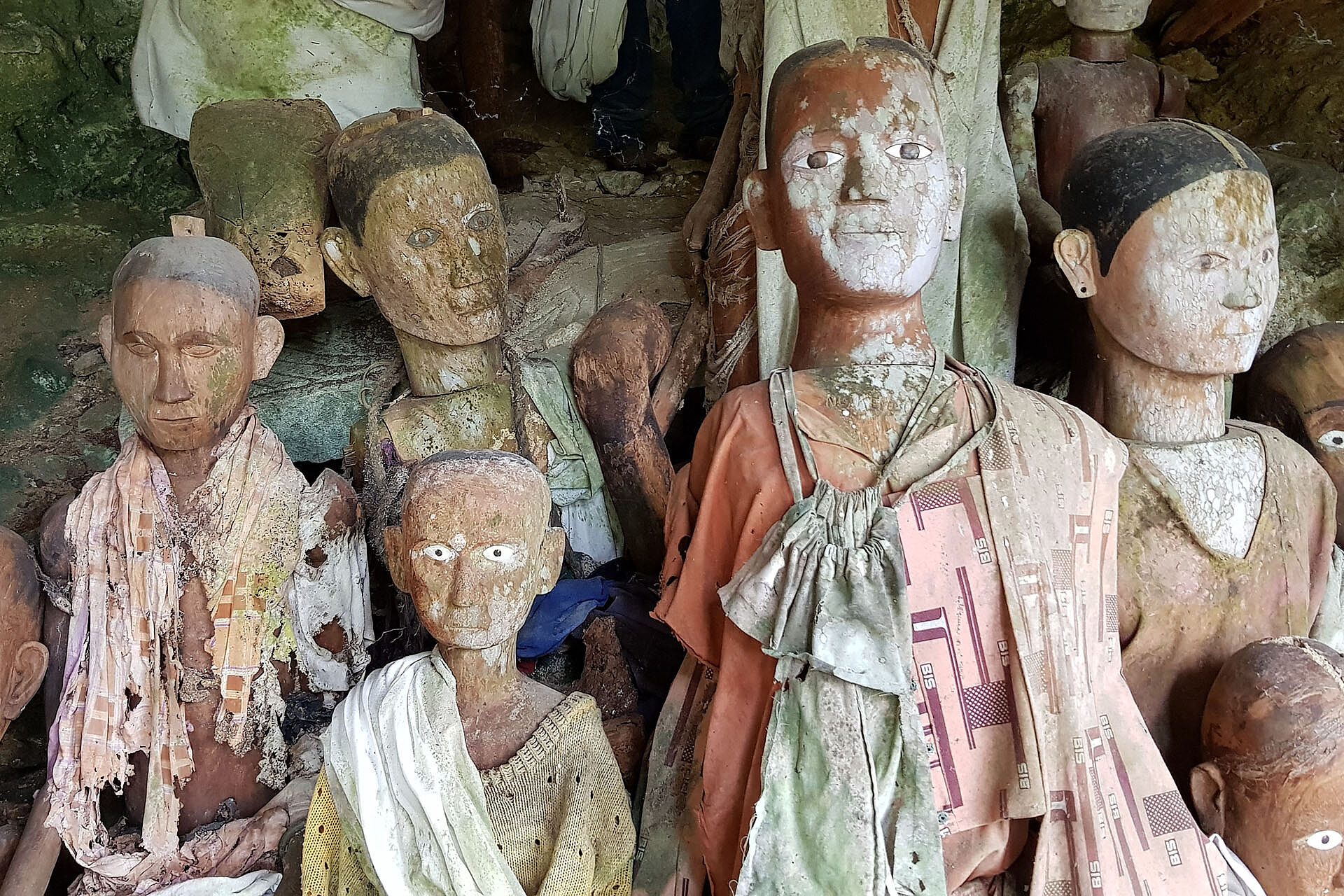Monday, 09. December 2024
Feature Series: Death and Eternal Life
An Exploration of the Hereafter

Our five-part series “Death and Eternal Life“ provides fascinating insights into funeral customs of the worldwide EMS fellowship. Many of these rituals straddle the line between Christianity and traditional religious beliefs. Churches often play a mediating role. In the first part, we invite you to discover the cemeteries of the Moravian Church in Germany and Greenland: they reflect the unique characteristics of Moravian theology.
All the articles in the series appear for the first time in the current issue of the magazine “EMS Insights”. Written by an editorial team from Africa, Asia and Europe, it offers an international perspective on the work of EMS member churches and mission societies.
Death in Sulawesi - The rituals of the Toraja
For the Toraja, death is merely a transition to a new life. Their traditional funeral ritual is an important part of their culture and identity. It has not changed even with the spread of Christianity in South Sulawesi.
The Toraja are a people that lives in the mountainous region of Tanah Toraja in South Sulawesi (Indonesia). When a Toraja person dies, he or she is initially considered sick rather than dead. The corpse is beautifully dressed and laid out in the house until the funeral. In the past, herbs were used to delay physical decay; today, formaldehyde is used. The funeral can also take place months or even years after the death. This is because the funeral ceremony needs to be well planned so that all the relatives can attend as well as guests from overseas, sometimes.
On the death of Ambe Arruan, who was mayor of the village of Te'tenai for many years, Hans Heinrich travelled there from Stuttgart. At the time, he was the EMS Liaison Secretary for Indonesia. “I was invited to the funeral service as one of the close relatives of the deceased. The time up to the funeral is spent in the company of the deceased. You sit by the bedside and share food or a cigarette together,” says Hans Heinrich. But he waited in vain for the funeral to take place during his visit. It took another nine months to complete the preparations. Then Hans Heinrich returned to Te'tenai to attend the actual funeral. With great ceremony, the deceased was laid to rest in a mountain tomb and provided with funerary gifts for his new life in the other world.
GIFTS AND BLOOD SACRIFICE
The social status of the deceased’s family is crucial to the way a funeral is organised. The higher the social standing, the more lavish the festivities. It is customary for the mourners to bring gifts – palm wine, rice, coffee, sugar or cigarettes, even pigs and water buffaloes. A particular highlight is the public slaughter of the buffaloes and pigs, which used to be the main part of the religious ritual in the past.
The animist and Christian religions are not mutually exclusive for the Toraja. The ceremony is attended by a pastor who delivers a sermon. The question of how the church deals with this ritual is nonetheless important. After all, around 80% of the 600,000 Toraja population in South Sulawesi today are Christians. “The church has been involved in far-reaching discussions for a long time,” says Hans Heinrich. “There are many critical voices among young and old pastors who regard the funeral ceremony as cultural ‘baggage’ and consider it superfluous.” In practice, however, most churches come to terms with it. They have realised that the ritual is important for the Toraja people – regardless of their religion. If the church were to reject or even ban this burial practice, many Torajans would turn their backs on the church.
Lea Wirz
Member of the Public Relations Team of Mission 21 (Switzerland).